Most medical mysteries seek to answer questions of physiology.
Why isn’t an infection responding to antibiotics?
What’s the underlying cause of seemingly unrelated symptoms?
Is that supposed to be red?
For lovers of crime fiction, however, literary medical mysteries endeavor to uncover a sickness in the human spirit. How villainy is incubated, presented and spread. The antidote that will halt destruction and restore the salubriousness of order.
In a category replete with police procedurals, hardboiled detectives, and amateur sleuths, the medical mystery is a sub-genre that continues to thrive. From thrillers featuring corporate conspirators to deadly diseases run amok to suspense novels with physicians who had their fingers crossed during the Hippocratic Oath, medically themed crime fiction is in fine fettle. In fact, medical mysteries and thrillers regularly top bestseller lists. Authors of such works have been catapulted to the pantheon of crime fiction faves. And the category is a darling among readers and Hollywood alike.
So what’s the underlying cause of this sub-genre’s popularity? Is it the inherent mysteries of the human body? The ubiquity of medical maladies and hope of their cure? The potential for us to be laid low by microbes or those clad in white lab coats?
In a word: yes.
In more words: And so much more.
The myriad of reasons doesn’t matter as much as the overall effect. For many readers, these books are just what the doctor ordered. Here, then, is a short list of medical mysteries and thrillers that function as great-reads therapy. Read two (or more) and call me in the morning.
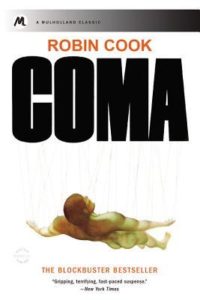
Coma, by Robin Cook
There’s a certain readerly symmetry in the fact that my first foray into medical thrillers was the first book to make Robin Cook synonymous with the genre. De rigeur for anyone interested in the inner workings of hospitals—or readers seeking to be seriously creeped out—Coma invites us to imagine what happens to those who never awaken from surgery. Cook is not only the father of the medical mystery/thriller category but is incredibly prolific in his work. The former physician likes to joke that if his books stop selling, he can always fall back on brain surgery.
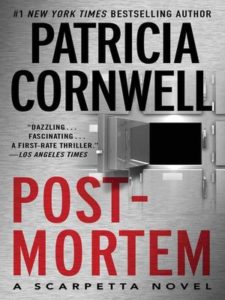
Postmortem, by Patricia Cornwell
As long as we’re on the topics of firsts, let’s talk about Patricia Cornwell’s debut novel, Postmortem. The first book in her critically acclaimed Kay Scarpetta series, Postmortem introduces us to her protagonist (who was brought to the fore after Cornwell was advised to dump the book’s male lead) as well as the world’s first forensic thriller. (Take that CSI.) Although she’s sold more than 100 million books, she’s never forgotten her humble beginnings. At her first signing, Cornwell fielded exactly one question: a woman who asked where she could find the cookbooks.
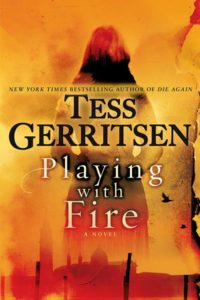
Playing with Fire, by Tess Gerritsen
Many consider Tess Gerritsen the queen of medical thrillers, and I curtsey before her voluminous and varied works. I’m a big fan (not restraining-order-big but close) of the physician-turned-author, and Playing with Fire is among my favorites of Gerritsen’s titles. A departure from Gerritsen’s other books, including the popular Rizzoli and Isles series, this novel peels the layers of suspicion, fear, and symptomology to serve up a satisfying multi-generational medical mystery.

Two Kinds of Truth, by Michael Connelly
This entry isn’t strictly a medical mystery. Or maybe not so strictly. But this Harry Bosch tome burrows beneath the surface of pill mills, the opioid crisis, and medical malfeasance so convincingly—and compellingly—it easily makes the list for me. Connelly masterfully crafts multiple storylines, tackles social issues, and puts flesh-and-blood characters through their paces with his signature aplomb in this gripping book.
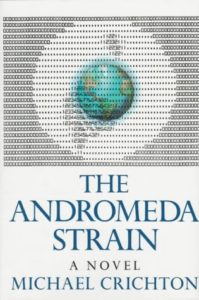
The Andromeda Strain, by Michael Crichton
No medical mystery list would be complete without a Michael Crichton title—or without a big, beautiful biochemical crisis. The Andromeda Strain, which examines the possibility of contagion from space (which itself would make a dandy title), is classic Crichton with a high concept, an unyielding dedication to research, and oodles of bona fide science. In fact, this book is said to have birthed the techno-thriller genre, making it an icon in both categories.
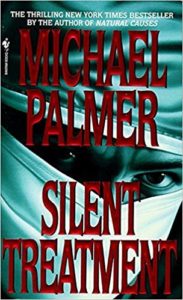
The Silent Treatment, by Michael Palmer
The Silent Treatment sutures medicine, murder, and motive in this suspenseful read. Physician author Michael Palmer draws on his own experience as a doctor to paint a picture of a medical intrigue in which a doctor is accused of murder after his wife’s sudden death while in the hospital. With a well-crafted plot, time-honored wrongly-accused trope, and engaging characters, this book is unputdownable. The only cure: reaching the last page.

Speaking in Bones, by Kathy Reichs
Kathy Reichs’ longstanding Temperance Brennan series proves that more is more. The eighteenth(!) book in the series, Speaking in Bones is a forensic thriller featuring a (potentially) murdered girl, a (slightly annoying) amateur sleuth, and a (strangely) secretive religious sect, all wrapped up in mélange of mystery and suspense. It’s almost enough to make a reader want to hang around the morgue. Almost.
Of course, there are many (many) more great medical mysteries and thrillers. Think of this as an abstract of a clinical study on worthwhile reads.

















